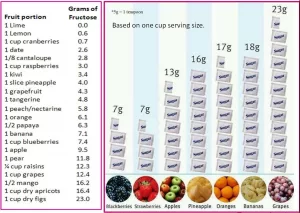Nuts can provide many health advantages, including lowering your chance of heart disease and bolstering immune function. Common varieties include almonds, pistachios, and walnuts.
Crunchy and satisfying, nuts make a tasty, nutrient-rich snack.
They supply a variety of essential nutrients, such as:
- fiber
- antioxidants
- vitamins and minerals
- heart-healthy fats
- protein
Consuming nuts offers many perks, including helping maintain a healthy body weight and lowering the risk of certain conditions like cardiovascular disease.
Nuts come in diverse textures, tastes, and nutrient makeups. Enjoy them plain, with fruit, or mixed into salads, desserts, and grain dishes.
Below are nine nutritious nuts worth adding to your regular meal plan.
1. Almonds
Almonds are widely enjoyed for their taste, strong nutrient content, and affordability. They can be eaten raw or roasted and are commonly processed into almond butter, flour, and milk.
A 1-ounce (28-gram) portion of roasted almonds provides roughly:
- Calories: 170
- Fat: 15 grams
- Protein: 6 grams
- Carbs: 6 grams
- Fiber: 3 grams
- Vitamin E: 45% of the Daily Value (DV)
- Magnesium: 19% of the DV
- Manganese: 27% of the DV
Almonds are particularly abundant in vitamin E, a fat-soluble antioxidant that shields cells from oxidative harm. This vitamin also supports immune health and cellular signaling.
Beyond being nutrient-packed, almonds may help lower risk factors for heart disease.
A study in 219 young adults discovered that those who consumed 2 ounces (56 grams) of almonds daily experienced notable decreases in LDL (bad) cholesterol, inflammation markers, and hemoglobin A1c — a measure of blood sugar control — compared with a control group.
Almonds may also support gut health by encouraging growth of beneficial gut microbes like Bifidobacteria and Lactobacillus species.
SummaryAlmonds are rich in key nutrients. Regular intake may benefit both heart and digestive health.
2. Pistachios
The name pistachio comes from the Greek pistákion, meaning “the green nut,” and they have been eaten for centuries.
These colorful nuts are nutrient-dense yet generally lower in calories and fat than many alternatives.
Just 1 ounce (28 grams) of pistachios contains approximately:
- Calories: 159
- Fat: 13 grams
- Protein: 6 grams
- Carbs: 8 grams
- Fiber: 3 grams
- Vitamin B1 (thiamine): 21% of the DV
- Vitamin B6: 28% of the DV
- Phosphorus: 11% of the DV
Pistachios deliver several important nutrients, notably vitamin B6, which your body requires for nutrient metabolism and immune support.
They’re also rich in plant compounds with potential health-promoting effects, including:
- the carotenoids lutein and zeaxanthin
- anthocyanins
- flavonoids
- proanthocyanidins
In a trial that included 100 overweight participants, one group consumed 1.5 ounces (42 grams) of pistachios daily in addition to a group-based behavioral weight loss program, while the comparison group only followed the weight loss program.
Both groups lost similar weight, but the pistachio group showed significant drops in blood pressure and increases in antioxidant levels in the blood.
SummaryPistachios are packed with anti-inflammatory and antioxidant compounds and may help improve blood pressure and other markers of health.
3. Walnuts
Walnuts are associated with several health benefits and boast a strong nutrient profile.
One ounce (28 grams) provides about:
- Calories: 185
- Fat: 18.5 grams
- Protein: 4 grams
- Carbs: 4 grams
- Fiber: 2 grams
- Copper: 50% of the DV
- Magnesium: 11% of the DV
- Manganese: 42% of the DV
Walnuts are an excellent source of copper, a mineral needed for producing enzymes involved in energy production and neurotransmitter creation. Copper also aids immune function and blood vessel formation.
Research shows walnuts can support heart health and may reduce several cardiovascular risk factors, including elevated:
- blood pressure
- LDL cholesterol
- triglycerides
Walnuts are particularly high in ALA omega-3 fatty acids compared with other nuts, supplying notable amounts per ounce.
Some evidence suggests that consuming 1–2 ounces (28–57 grams) of walnuts daily might support cognitive function and lower dementia risk factors like heart disease and type 2 diabetes.
While promising, more research is required to confirm these effects.
SummaryWalnuts, rich in copper and manganese, may enhance both cardiovascular and brain health.
Healthy breakfast ideas: walnut granola
4. Cashews

Cashews offer a firm bite with a creamy texture that complements both savory and sweet recipes. They can be enjoyed raw, roasted, or turned into a creamy nut butter.
One ounce (28 grams) of raw cashews contains roughly:
- Calories: 157
- Fat: 12 grams
- Protein: 5 grams
- Carbs: 9 grams
- Fiber: 1 gram
- Vitamin K: 8% of the DV
- Magnesium: 20% of the DV
- Manganese: 20% of the DV
Cashews offer nutrients important for bone health, including:
- protein
- vitamin K
- magnesium
- manganese
Some research has reported that cashew consumption led to lower blood pressure and triglyceride levels.
However, findings have been mixed, so more studies are necessary to draw firm conclusions.
SummaryCashews may help improve blood lipid levels and reduce blood pressure in some studies. They also supply vitamin K and minerals like magnesium and manganese.
5. Pecans
Pecans have a mild, buttery flavor and are commonly used in pies, cakes, and salads.
An ounce (28 grams) of roasted pecans contains approximately:
- Calories: 201
- Fat: 21 grams
- Protein: 3 grams
- Carbs: 4 grams
- Fiber: 3 grams
- Vitamin B1 (thiamine): 11% of the DV
- Zinc: 13% of the DV
- Manganese: 48% of the DV
Pecans are a decent source of zinc, a mineral involved in:
- immune response
- wound healing
- DNA synthesis
- growth and development
Some studies suggest pecans may support cardiovascular health.
A small 8-week trial with 56 people at risk of heart disease found that daily pecan consumption led to significant reductions in LDL cholesterol and triglycerides versus a control group.
SummaryPecans provide beneficial nutrients like zinc and manganese, and may help promote heart health.
6. Macadamia nuts
Macadamias have a rich, buttery mouthfeel and contain several important nutrients. One ounce (28.35 grams) supplies about:
- Calories: 204
- Fat: 21.5 grams
- Protein: 2 grams
- Carbs: 4 grams
- Fiber: 2.5 grams
- Vitamin B1 (thiamine): 28% of the DV
- Manganese: 51% of the DV
- Copper: 24% of the DV
These nuts are rich in healthy fats and lower in carbohydrates compared with many others, making them popular among low-carb dieters.
A 2015 review of 61 clinical trials found that eating tree nuts, macadamias included, may reduce LDL cholesterol, triglycerides, and blood sugar.
SummaryMacadamia nuts are high in beneficial fats and contain important nutrients like vitamin B1 and manganese.
7. Brazil nuts
Brazil nuts are particularly rich in several nutrients, most notably selenium.
A 1-ounce (28-gram) serving provides about:
- Calories: 187
- Fat: 19 grams
- Protein: 4 grams
- Carbs: 3 grams
- Fiber: 2 grams
- Vitamin E: 11% of the DV
- Magnesium: 25% of the DV
- Selenium: 989% of the DV
Brazil nuts contain a variety of vitamins and minerals, including vitamin E and magnesium, which contribute to:
- blood sugar and blood pressure control
- nerve health
- energy production
They are among the richest food sources of selenium, a mineral essential for thyroid hormone synthesis and DNA production.
Because selenium intake can quickly exceed recommended limits, it’s wise to limit Brazil nut consumption to a few nuts daily to avoid surpassing the 400 mcg upper limit, which could cause selenium toxicity.
In practice, toxicity is more commonly linked to supplements rather than food sources.
Brazil nuts may also possess anti-inflammatory and antioxidant properties.
SummaryBrazil nuts are an outstanding source of selenium, an antioxidant nutrient important for thyroid function.
8. Hazelnuts
Hazelnuts are nutrient-dense, offering healthy fats, protein, and fiber. A 1-ounce (28-gram) serving contains approximately:
- Calories: 178
- Fat: 17 grams
- Protein: 4 grams
- Carbs: 5 grams
- Fiber: 3 grams
- Vitamin E: 28% of the DV
- Magnesium: 11% of the DV
- Manganese: 76% of the DV
Besides vitamins and minerals, hazelnuts contain antioxidant and anti-inflammatory plant compounds such as:
- gallic acid
- epicatechin
- caffeic acid
- quercetin
A 2016 review of nine studies indicates that regular hazelnut intake may reduce heart disease risk factors like elevated LDL and total cholesterol.
SummaryHazelnuts, rich in vitamin E and manganese, may help lower certain cardiovascular risk factors.
9. Peanuts

Although peanuts are technically legumes, their nutrient composition and health benefits are similar to many tree nuts, and they’re used similarly in cooking.
One ounce (28.35 grams) of raw peanuts contains approximately:
- Calories: 162
- Fat: 13.5 grams
- Protein: 7 grams
- Carbs: 6 grams
- Fiber: 2.5 grams
- Vitamin B3 (niacin): 23% of the DV
- Vitamin B9 (folate): 17% of the DV
- Magnesium: 12% of the DV
Peanuts are an abundant plant-based protein source that may increase satiety. They’re rich in polyphenol antioxidants and are also a notable source of folate, a B vitamin important during pregnancy for fetal and placental development.
Some research indicates peanuts might lower the risk of cardiovascular disease, coronary heart disease, and stroke; these benefits don’t necessarily extend to peanut butter.
SummaryPeanuts, though technically legumes, provide several B vitamins and may help reduce cardiovascular risk.
Frequently asked questions
What is the most nutritious way to eat nuts?
The healthiest approach is to consume nuts whole without added salt or sugar. Because they’re calorie-dense, stick to a 1-ounce serving size to keep portions reasonable.
Which nuts are least fattening?
All nuts are relatively high in calories, but peanuts and pistachios tend to be slightly lower per serving. Hazelnuts and almonds contain less saturated fat compared with some other nuts.
What is the unhealthiest nut to eat?
Macadamia nuts are among the highest in calories, while Brazil nuts contain the most saturated fats per serving among common varieties.
Takeaway
Nuts are excellent sources of nutrients like protein, healthy fats, fiber, vitamins, and minerals.
When included in a balanced, nutrient-rich diet, they may lower heart disease risk and support immune health, among other benefits.
Additionally, nuts are versatile and tasty. Enjoy them alone or combine them with other wholesome foods such as fruits and vegetables.

























Leave a Reply
You must be logged in to post a comment.